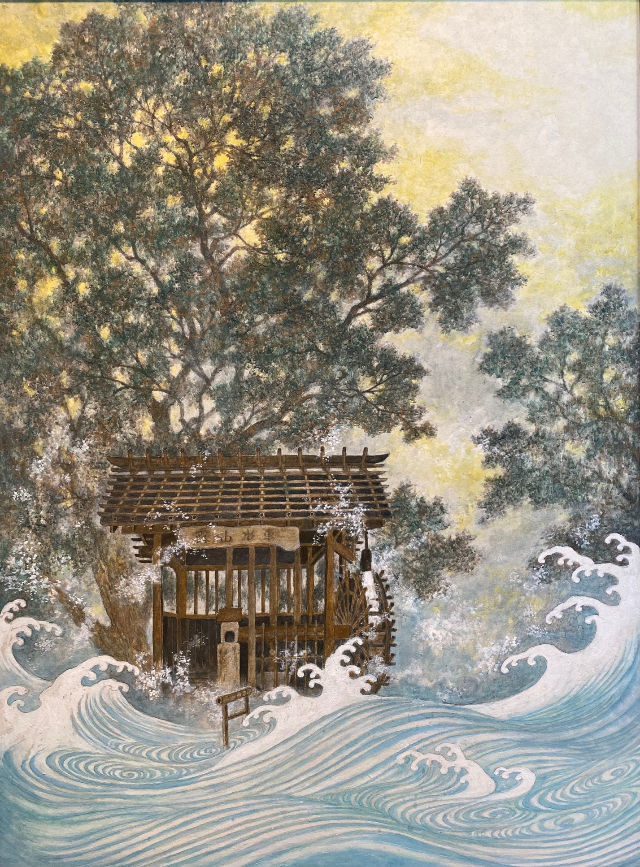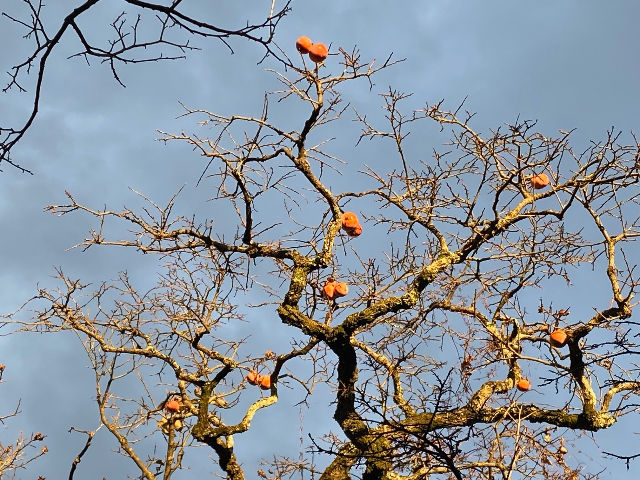ANOTHER ONE BITES THE DUST
- Rebecca Otowa
- Nov 24, 2022
- 5 min read
November 22, 2022

I am reminded that today is ii fufu no hi (Good Spouses’ Day), a pun on the numbers 11.22. I am also reminded that next year will be the 60th !! anniversary of the death of JFK. When the numbers get up this high, I can’t help thinking that I am indeed getting old.
Another old entity is no more in our town. As you can see from the picture, there is now a gap in the close-set housefronts of our main road, where until last month there was an old house. Right next door, if you can read it, is a sign signifying that this is the headquarters of the “Hino Town Society for the Preservation of the Street Scene” i.e. a preservation society for old houses, of which I am a member. We really dropped the ball on this one… You can draw your own conclusions about that, when you hear the story.
I won’t give many details of this story in order to protect the innocent, and perhaps the guilty. But to me it shows that Might Makes Right still is king in these rural communities. The ancient weapons known as “clout” and “chutzpah” were liberally applied, and as a result, another irreplaceable old house has bitten the dust. Clout and Chutzpah, 1 – Preservation Society, 0.
Our Preservation Society headquarters was saved from a similar fate by a very generous member who bought the house for our use. He also bought the house next door, but was persuaded to sell it by another member who introduced an enthusiastic buyer. This person wanted it for an office for his local business, and the seller stipulated that, according to our Society’s manifesto, at least the front of the house should be preserved to maintain the integrity of the machinami (street scene). This was apparently part of the contract that the buyer signed.
Imagine our dismay when the bulldozers moved in and broke the old house to bits. The buyer had broken the contract. I could just imagine him mentally flipping us the bird, or giving us the raspberry, or whatever the equivalent is in Japan.
Well, there’s no use crying over spilt milk. The buyer used the time-honored tactic, the fait accompli, to express what he thought in no uncertain terms. The old house is gone now, and it won’t be back. In its place there will probably be an ugly modern plastic shopfront. It’s not the first time this has happened in our town, along the main street, and it won’t be the last.
In spite of the best efforts of Societies like ours, the traditional street scenes are gradually disappearing all over Japan, one old wooden house at a time. All too often what is left is a gaping hole, which is not used for anything and eventually becomes a de facto parking lot. Financially speaking, the owners of these buildings are often in a cleft stick. The houses are badly damaged by age and weather (especially the roofs), and they are hugely expensive to repair, but knocking them down is also very expensive. The situation is complicated even more by the guilty feelings of the owners. Often they don’t want to sell their house because deceased ancestors would be angry. But they don’t want to live in it either. So the building gradually acquires weeds sticking out of the fence, the roof becomes bowed like the back of an old horse, the wooden fence becomes cracked and dry. Eventually the poor thing can’t remain standing any more, and collapses.
Old houses like these, mostly in better situations with lots of land around them, are much in demand these days by people, including foreigners, who want to “do them up” as pensions, AirBNBs, restaurants, or to live in. In our town, farther up the main street, is a lovely and very popular noodle restaurant and café that was made within an old house; the same people are now opening an Italian restaurant, which will also preserve the original building, a few doors down. The Preservation Society was the legal guardian of this house for years before it was bought by the restaurant people. That is one of our success stories. Municipal Indifference, 0 – Preservation Society, 1.
Win a few, lose a few. It does feel good to win sometimes, though that deal too was fraught with worries on both sides. But much more is being lost than the prestige of the Preservation Society. Destroying or neglecting something is much easier (and cheaper) than taking care of it or fixing it up. I understand that money is necessary if you want to save these old houses. In the Preservation Society, we once resorted to crowdfunding to repair a vital part of one old house. Happily, it was a success. But to destroy these buildings is to destroy the memory of an age. Perhaps the way of life they represent is oppressive to Japanese people who remember how dark, scary and full of bugs Grandma’s house was; but good things are also being lost through sheer carelessness.
In English we have a proverb, “to throw out the baby with the bathwater”. To many, these old, often neglected houses along the main street are eyesores. It isn’t possible to save all of them, because there are just too many and there isn’t enough money available. And I realize that the “old houses” that I am looking at were once new, and replaced some other form of edifice. But when these houses are thrown out with the bathwater, a lot of babies in the form of valuable traditions and technical know-how are also thrown out.
In my 40 years or so in Japan, I have frequently been disappointed or enraged by indifference and blind adherence to authority or the status quo. It seems to be part of life here in the countryside. Niggly little customs are followed to the letter (woe betide you if you forget to wear your mask in a public place, inside or out! The government’s Rules don’t hold a candle to the strength of social disapproval) but the big-picture problems, such as how and why to preserve certain valuable old things, don’t seem to matter. If one or two people complain, sometimes something is done, but often that something is to the detriment of a whole bunch of other people. I have written about this before, and the key to it seems to be the “2 M’s” of Japanese life: mendokusai (I can’t be bothered) and what inevitably follows, mottainai (a waste). There seems to be a lot of indifference to real problems in the town and the neighborhood, but… protesting and trying to change things just isn’t done. The truth is, change is happening right under our feet. If we try to control everything and avoid change, we end up just as unhappy, because change is going to happen no matter what.
When in Rome, don’t do what the Romans don’t do. Very important to remember in this country.



Yet Japan is so good at rebuilding and restoring historic buildings to their perfect, original, traditional charm, artesinal contstruction methods and all! I'm surprised there isn't zoning (or the like) that requires new construction in historic areas to have facades and rooflines that at least look traditional. Japan's future is, to a large extent, is in tourism, and that requires preservation of traditional scenes, culture, techniques and arts so that there's something worth coming to see. "Theme" villages in the US, even if totally unrelated to the locale, like Solvang, are very popular. In the UK, cultural and artistic preservation have long been recognized as incredibly important to the economy. It surprises me how little Japan reognizes this.
What a shame!
Not every old building is worth saving. But every one is worth at least documenting, and preserving its memory.